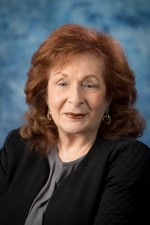 We wanted to get to know Suzanne Sherman (NAIWE’s Memoir Coach Expert) better, so last month we sat down with her. Here are some thoughts she shared with us.
We wanted to get to know Suzanne Sherman (NAIWE’s Memoir Coach Expert) better, so last month we sat down with her. Here are some thoughts she shared with us.
How is writing a memoir different than writing a fiction work?
Memoir is interested in the power of the personal. Memoir is a genre known also by the name creative nonfiction. Memoir is nonfiction; it is not fiction. Memoir does, however, share some of narrative tools fiction uses, such as the inclusion of both scene and narrative, the use of character development, plot that drives the story, and narrative arc (the protagonist, or author’s, growth journey from start to finish). Memoir is not autobiography. Autobiography is a story OF a life. Memoir is a story FROM a life, usually one with relatable aspects readers can learn from. Memoir has a theme, usually a focused topic or time period, such as overcoming an addiction (Drinking: A Love Story by Carolyn Knapp), coming to terms with the death of a loved one (Wild by Cheryl Strayed), carrying a child with Down’s Syndrome while in graduate school at Harvard (Expecting Adam by Martha Beck). Writing memoir is different from writing fiction in part because authors are drawing on their experience and animating that core truth with believable characters in unfolding scenes that move the story from beginning to end.
Does an author need permission to write about those who may have caused harm to the author?
Memoirists are not required to receive verbal or written permission by anyone mentioned or even featured in a book. In this webinar, Methods for Managing Exposure of Self and Others in Memoir, I will discuss this important detail, sharing information supplied by an attorney who specializes in self-publishing. Authors can choose one of several options if they are concerned about revealing someone’s identity in their book.
Why do some authors of memoirs use pen names?
Using a pen name is one of the ways authors sometimes publish to avoid revealing their identity if they are concerned about that, for personal or professional reasons. There can be relief for some in knowing their identity isn’t known when their book is published. There can, however, be drawbacks with this too. In the webinar, I’ll discuss the pros and cons of using a pen name.
——————
Different from fiction, memoir can often lead a writer into some emotionally challenging territory. Writers often have to spend time exploring material that is essential for their book but is uncomfortable to dive into deeply to craft scenes and write an engaging narrative that includes what’s needed.
How do successful memoir authors do it? Jeannette Walls (The Glass Castle), Caroline Knapp (Drinking: A Love Story), and Vince Granata (Everything Is Fine) are just a few writers who have published critically acclaimed memoirs with emotionally challenging material in recent years. Cheryl Strayed (Wild) and Elizabeth Gilbert (Eat, Pray, Love) wrote bestselling memoirs that showcased their vulnerabilities without shame.
Suzanne Sherman will give you helpful tips and tested methods for navigating the emotional territory that can come with writing memoir so you can successfully include what is essential if you want to write a memoir. She will address self-exposure and the exposure of others and show ways other authors work with it. Suzanne will provide information about relevant legalities and discuss the pros and cons of pen names.
Take advantage of this unique opportunity to benefit your writing.
You can join in this conversation on November 14, at 2:00 pm eastern, when NAIWE will host a discussion on feeling vulnerable in writing your memoir. The cost for NAIWE members is only $10! Nonmembers can join for $30. Register today!
Suzanne Sherman is an author, book and magazine editor, and writing and publishing coach and consultant. She specializes in memoir and nonfiction and offers a weekly memoir writing class on Zoom. Her latest book is Girlhood in America: Personal Stories 1910–2010.

 We wanted to get to know MJ Courchesne (
We wanted to get to know MJ Courchesne ( We wanted to get to know Amy Waters Yarsinske (
We wanted to get to know Amy Waters Yarsinske ( We wanted to get to know Ruth Thaler-Carter (
We wanted to get to know Ruth Thaler-Carter ( We wanted to get to know Laura Pennington Briggs (
We wanted to get to know Laura Pennington Briggs ( We wanted to get to know Leslie Truex (
We wanted to get to know Leslie Truex ( We wanted to get to know Marcia Rosen (
We wanted to get to know Marcia Rosen ( We wanted to get to know Karin Beery (
We wanted to get to know Karin Beery ( We wanted to get to know Jennia D’Lima (
We wanted to get to know Jennia D’Lima (